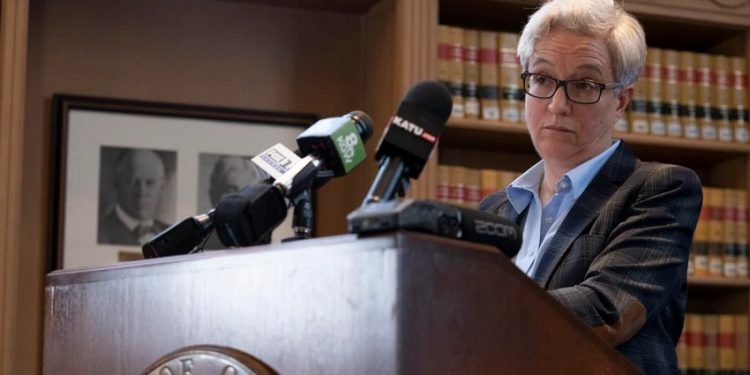Astoria, OR – Oregon state auditors have raised concerns over several expenditures by Governor Tina Kotek’s office, flagging what they described as “minor” and “unintentional” violations of state ethics laws. The potential infractions were uncovered following a review prompted by anonymous complaints to the state’s government accountability hotline. These complaints suggested misuse of state resources related to Kotek’s now-abandoned plans to establish an office for the first spouse.
In a letter to Governor Kotek, Cheryl Myers, then-deputy Secretary of State, outlined several instances where state funds appeared to have been used inappropriately. While auditors found that the original allegations against the governor’s office were unfounded, they identified multiple expenses that raised red flags regarding state policy and ethics regulations. Myers emphasized that auditors did not review all transactions but focused on specific categories, including parking, entertainment, and catering costs.
One of the primary concerns highlighted by auditors was the use of state funds for parking expenses. The state covered monthly parking fees for Aimee Kotek Wilson, the first lady, amounting to $65 per month for parking in Salem, and for Annie McColaugh, the governor’s director of federal affairs, who had a $315 monthly parking fee in Washington, D.C. According to state law, public officials are prohibited from receiving financial benefits, such as parking reimbursements, unless clearly stated in official policies.
In addition, auditors flagged several entertainment-related expenses, totaling $615. These included tickets to a Queen tribute concert in Portland ($120 for two tickets), tickets to a Portland Gay Men’s Chorus performance ($320 for five tickets), an orchestral performance in Salem ($110 for two tickets), and a silent film screening in Salem ($63 for three tickets). State law allows public funds to cover entertainment costs only under specific circumstances, such as when public officials are on duty or performing official duties. In these cases, auditors suggested that the governor’s office may have violated state policy by covering tickets for events that were not directly tied to official functions.
Another area of concern was a catered dinner reception held in August 2023 at the governor’s mansion. The event, which was intended to recognize employees from the governor’s office, Oregon State Police, and the Department of Administrative Services, involved a $9,330 catering bill from Xicha Brewing Company. The spread included a variety of dishes such as salads, skewers, and a build-your-own tostada bar, served to approximately 180 attendees. While the Oregon Accounting Manual allows state funds to cover refreshments like coffee, bottled water, and snacks for employee recognition events, it prohibits the use of state money for full meals. Auditors recommended that the governor’s office adhere to state policy by limiting such events to refreshments or, alternatively, work with the Department of Administrative Services to update existing policies to better align with modern practices.
The auditors’ findings were shared with the Oregon Government Ethics Commission, which confirmed that it is reviewing the case to determine whether further investigation is warranted.
A spokesperson for Governor Kotek’s office has not yet responded to requests for comment on the matter.













